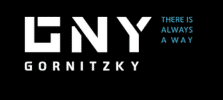On May 16, 2023, the Israel Tax Authority expressed its position with respect to the tax aspects that apply to an investment through a Simple Agreement for Future Equity (SAFE).
The Israel Tax Authority came to address the matter after a long period of uncertainty with respect to its position regarding the manner of taxing SAFE investments, a situation which made it difficult for companies to attract investors and to find sources of financing.
In a SAFE transaction, no immediate allocation of shares is made against the injection of capital by the investor, but, rather, the shares are allocated at a later stage, when a value has been established for the company through a broader and more substantial round of fundraising, at which time the SAFE investor is given a discount relative to this value. The main issue that the Israel Tax Authority was required to address in this regard pertains to the question of how the discount component in the SAFE investment will be classified (i.e., the difference between the amount of the investment on the date on which the SAFE investment is made and the fair value of the shares allocated to the investor in respect of said investment on the subsequent date of exercise) and, in particular, if the said difference will be classified as interest income.
In response to an inquiry made by the Israel Advanced Technology Industries (IATI) in this regard, dated May 2022, the Israel Tax Authority issued a “Safe Harbor” letter, according to which, upon the satisfaction of certain circumstances, the SAFE investment will be deemed to be an advance payment on account of shares, and, therefore, no tax event will occur on the date of the exercise into shares, and the company will not be subject to any obligation to withhold tax with respect thereto. According to the Israel Tax Authority’s guidance, if, on the exercise date, the conditions as set forth in the guidance have not been satisfied, that shall not determine the classification of the SAFE investment for tax purposes, and this classification will be determined in accordance with the entirety of the circumstances of the transaction.
The Israel Tax Authority’s guidance pertains solely to Israeli-resident private companies, which operate in the high-tech industry and which are at the stage where most of their expenses are classified as expenses in respect of research and development, production or marketing for the products that have been developed by them, and which did not conduct a fundraising round according to a known share value during the three-month period prior to the SAFE Agreement’s closing date.
The Israel Tax Authority’s guidance applies solely to SAFE investments which comply with a long and challenging list of specific conditions and which have been signed or will be signed between companies and SAFE investors by December 31, 2024, or in accordance with other guidance that will be issued by the Israel Tax Authority. Below are the key conditions:
- The amount of the SAFE investment for a single investor shall not exceed NIS 40 million;
- The ability to transfer the SAFE to a third party is subject to obtaining the consent of the company, except in the case of a permitted transferee as determined in the SAFE Agreement;
- The SAFE Agreement does not include interest, royalties or any other return, from the date of the investment and up until the date of the conversion of the SAFE into shares of the company;
- The amount of the discount inherent in the exercise of the SAFE into shares does not vary in accordance with the passing of time;
- Investors have no right to the reimbursement of the funds of the SAFE investment which is not by way of exercising the SAFE into shares, or, in a transaction in which all of the outstanding shares of the company are being sold, by receiving an amount that would have been received by the SAFE investor had the SAFE investment been exercised, except in certain cases, such as the liquidation of the company, process of receivership, or by court ruling.;
- The exercise of the SAFE into shares of the company will be performed in accordance with a mechanism determined in advance, at the time of a fundraising, an offering on the stock exchange, or an exit-type event;
- The company’s assets were not pledged, no liens were placed on such assets, and no guarantees were given (including by entities related to the company), in favor of the SAFE investor;
- The Company will not claim any deduction for tax purposes with respect to any financing expenses related to the SAFE (including by way of amortizing financing expenses, re-valuating liabilities, or any other way);
- In a fundraising round that constitutes a trigger for the exercise of the SAFE, at least 25% of the amount raised is from investors that are not the SAFE investors;
- Other than in exceptional cases, the date of the sale of the shares allocated from the exercise of the SAFE shall be at the expiration of at least [a] 12 months from the date of the signing of the SAFE Agreement; or [b] 9 months from the exercise date.
It should be clarified that the above list does not contain all of the terms and conditions that were included in the Israel Tax Authority’s guidance. The full text of the Israel Tax Authority’s directive (in Hebrew) is available at this link.
As stated above, the Israel Tax Authority’s directive applies to SAFE investments with specific characteristics, and such that are given to companies with a certain profile only. Our firm has frequently come across SAFE investments that do not comply with all of the aforesaid conditions, and it is therefore difficult to predict how the Israel Tax Authority will act in relation to such SAFE investments, and whether the publication of the directive might actually work against such investments.












